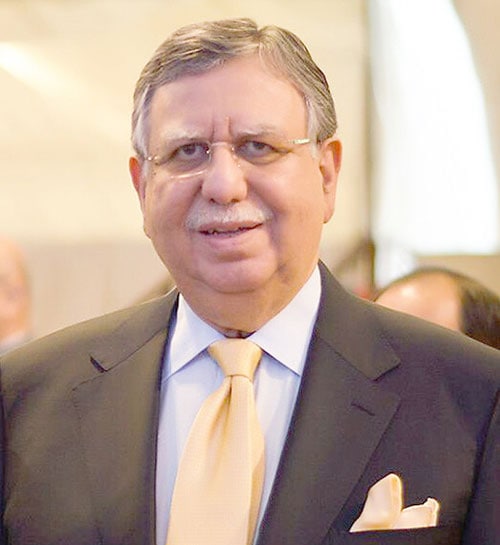Adviser to the Prime Minister on Finance and Revenue Mr. Shaukat Tarin virtually addressed the 10th Islamic Finance Expo & Conference, on Tuesday.
Theme of the conference was New Normal-Digital Transformation & Islamic Economy and was organized by The Professional Network and IBA-CEIF.
While addressing the conference, the Adviser to the Prime Minister on Finance and Revenue Mr. Shaukat Tarin highlighted the main components of Islamic Banking and stated that Islamic finance is one of the most rapidly growing sectors of the global financial system.
It has emerged as an effective tool for financing development worldwide, including in non-Muslim countries.
It promotes risk sharing, connects the financial sector with the real economy, and emphasizes financial inclusion and social welfare.
The sustainable development of Islamic finance offers benefits for economic growth, reducing poverty and fostering shared prosperity.
He believed that through directed instruments, such as Zakah, Sadaqat, Waqf, and Qard-al-hassan interest free system creates effective wealth redistribution in the society.
The adviser expressed that Islamic finance has much in common with Environmental, Social and Governance (ESG) objectives and has an appeal far beyond Muslim audiences.
Structured around risk sharing and avoiding interest, Islamic finance helps reduce poverty, expand access to finance, develop the financial sector, and build stability and resilience.
He emphasized that Islamic finance industry must strive to become an outward looking industry with a global appeal transcending borders that presents unique solutions for real world problems.
The economic principles taught by the Quran and Sunnah of the Prophet (Peace Be upon Him) provide a useful guide for solving the major economic problems faced by the world today. “No risk, no gain” is the basic juristic principle of Shariah and a normative rule of justice.
The Adviser underlined the core principles of Islam which lay immense weight on inclusion, social justice, and sharing of resources.
A Riba free system thus entails the elements of development of real economy, social justice, transparency, equity and property rights; entitlement to profit – with risk and reward sharing; prohibition of speculative behavior and excessive uncertainty.
The Adviser suggested that Islamic banking and finance needs to take the lead for bringing positive change in the financial system through increased focus on value based intermediation and socially responsible investment.
Innovations in the use of Islamic financial instruments can go a long way in supporting the SDGs.










